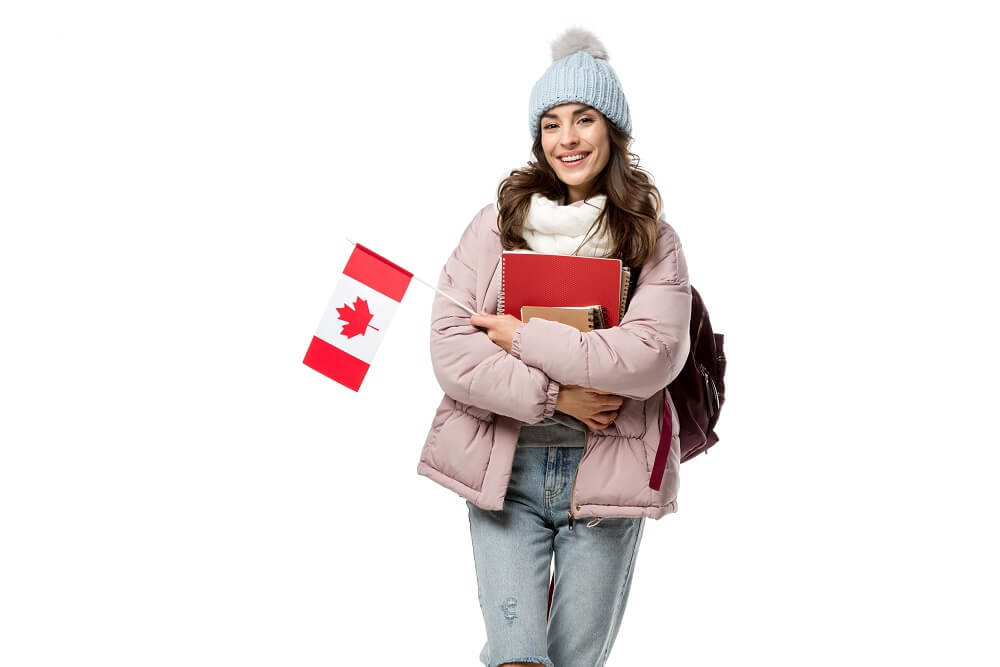It isn’t easy to move to a foreign country. Everything will be very different in Canada from your home country. We know you have many questions. So we have answered the most common questions that students have about living and studying in Canada.
Canada Frequently asked questions
Which type of high school diploma can be accepted by Canadian post-secondary institutions?
If you are concerned if the high school diploma you’ve earned in your home country will be considered legit in Canada, worry no more since any student possessing a government-accredited high school diploma from their home country may apply for admission to a Canadian University.
What are the main differences between Colleges and Universities in Canada?
Universities can set educational, admission, and graduation policies and standards. Universities can decide on academic matters such as teaching methods, curricula, and other aspects. They can also appoint staff and do educational planning. Private Universities, on the other hand, are allowed to offer degrees after an exhaustive quality assessment by designated governmental authorities.
What are some of the requirements to be accepted at a Canadian University/College?
Students must meet specific requirements to be admitted to a Canadian tertiary education institution. The competition for admission can vary depending on the subject matter, program, and other factors. However, the two most important criteria are high school performance and language skills.
What is the likelihood of you getting a post-secondary degree from a Canadian post-secondary institution?
After completing a BA in a Canadian tertiary institution, you can continue your post-graduate studies here with full legal support from Canadian authorities.
What is the average time to earn a Master’s degree in Canada?
Master’s degrees typically last for one academic year, with an obligatory internship. A Master’s degree may last up to two years, depending on the curriculum and the program’s sensitivity.
What is the average time to earn a Ph.D. in Canada?
Ph.D. programs last two to three years and are often considered a job opportunity (not always).
Is it possible to apply online at a Canadian university? Or do I need to be physically present in Canada?
Follow the link to see the step-by-step guide for an online application.
How can you tell the difference between public and private post-secondary education institutions in Canada?
Public universities are often independent of government monitoring and do not require accreditation. Private universities, however, are frequently monitored by the state-gathered education council.
What documentation do I need to apply for a Canadian student visa?
Applicants are usually required:
- Acceptance and enrollment in an academic institution in Canada.
- Have a valid passport/travel document and can provide evidence of financial support.
- Proof of their desire to leave Canada after they finish their studies.
Students must also prove that they are free from any criminal or dangerous medical conditions and will undergo any medical testing required.
What is the waiting period for a Canadian student visa/study permit?
There are many processing times. It all depends on what type of application you send and where it is processed.
Do you need health insurance to study in Canada?
All international students studying in Canada must have some form of health insurance.
How can I get health insurance for international students in Canada?
It all depends on where you live. The provincial public health insurance plan might not cover international students, so they must purchase private insurance. The deal usually takes place through the university they choose to attend.
What is the cost of health insurance for international students in Canada?
The cost of living is variable in each province. However, it would be approximately 500 Canadian Dollars per year.
Is it possible to work in Canada without a permit?
Canada is very open to international students. For those focused on their studies, you will find some jobs that do not require a work permit but are very low-paid.
- Acceptance letter;
- Proof that you are authentic;
- You have enough funds to pay for your stay in Canada.
How much will I need to pay for lodging in Canada?
Accommodation costs vary depending on where you live in Canada and the type of accommodation you choose. Estimating $7300 to $14 000 per annum would be a good starting point.
What’s the average Canadian lifestyle?
Most people think of Canada as a paradise for nature, with beautiful landscapes, scary forests, and dramatic mountains. However, it has lots of souls. Canada’s people are open-minded, transparent, and bold towards their fellow ex-pats. One side of Canada is in the wilderness.
What other options are there for short-term accommodation in Canada,
Upon arrival in Canada, there are many hotels available. A hostel, a low-cost option for larger hotels in big cities, is the ideal temporary accommodation. A Bed-and-Breakfast is another option for short stays.
What benefits does private accommodation have in Canada?
Students who seek privacy and intimacy in a private setting can rent. The location, quality, and availability of the rents will all affect their costs. Living in an apartment alone is pretty expensive, so students often share flats to save money.
- Rent not paid in full
- Consistently late paying rent
- Causes damage to rental property,
- Illegal activity,
- Affecting the safety of others,
- Trying to disturb the enjoyment of tenants or landlords,
- Too many people living in the rental unit (“overcrowding”)
- Not reporting income in subsidized housing.
What is it like to be a nanny?
What are the requirements to work as a nanny?
- Eligible for a Canadian working visa
- Current police and health check
- Childcare experience
- For a minimum of one year
Can Canadian institutions accept the 10+2+3 Indian education system?
Yes, the 10+2+3 system can be accepted for post-graduate (PG) diploma programs. However, most universities require 10+2+4 for masters. Some universities might take 10+2+3 master’s programs in some instances.
Canada, unlike India, has two parallel education systems. Universities and colleges are distinct entities. Universities offer master’s programs, while colleges offer PG diplomas. Some universities might also offer PG Diploma programs in specific courses.
Where and what to study in Canada after 12th grade?
Your interests, academic background, and budget will determine the program or institution you choose. You can begin by making a list of all your interests and skills and then spend some time reflecting on it. Do some research to determine which skill or interest is most applicable to your career. You can narrow down your options and search for institutions and courses that match your interests. Because not all colleges and universities offer the same programs, you must consider which intakes your favorite systems are.
This handy guide will help you select the right course for your needs and profile. Book a complimentary counseling session with one of our skilled counselors to help you choose the right path, submit your application, and complete the visa process.
Where and what can I study in Canada after my graduation?
It can be one of the most rewarding decisions you make in your life. Mastering your studies in Canada will not only improve your technical skills but will also help to boost your CV. Canadian colleges and universities offer a research-based learning model that allows you to apply all of the ideas and concepts you have learned in class. An international student who has completed an undergraduate degree should look for an institution that emphasizes practical knowledge and hands-on experiences and make you job-ready.
When deciding where and what to study, consider your academic score; start by looking at what subjects you have learned as an undergrad. Next, make a list of the most exciting issues for you. You can then narrow down your search to find the best programs and universities. You will need to pass aptitude and language tests to apply to Canadian colleges and universities. Make sure you check the intake for your chosen courses to ensure that you are prepared.
Our expert counselors will help you find the right college or university for you. For free advice about how to advance your post-graduate career here in Canada, visit your nearest IDP office.
What English language tests can Canadian institutions accept?
The International English Language Testing System is the preferred English proficiency test accepted by most Canadian institutions. It is also recommended as per Student Direct Stream (SDS), which is the fastest way for students in Canada to obtain a visa. Globally, Canadian institutions are open to other proficiency tests. Please check the official website to confirm.
Can students work during their studies in Canada?
Students can work 20 hours per week in an ongoing session and full-time during vacations. Depending on the length of your program, you may be eligible for up to three years’ extension.
A work permit for a 1-year program is possible. For programs lasting 2-4 years, a permit can be obtained. (Visa rules can change, so please visit the official website)
Are Canada’s qualifications recognized worldwide?
Degrees from Canadian universities are recognized worldwide for their quality education.
Are there any requirements for students under 18 to study in Canada?
You must submit a custodian note with your visa application if you are younger than 18 years old. When you apply for your visa, your IDP counselor can assist you with this.



